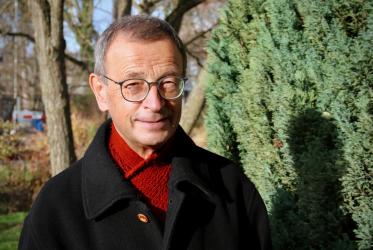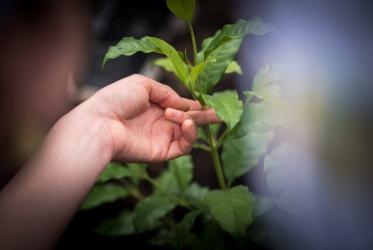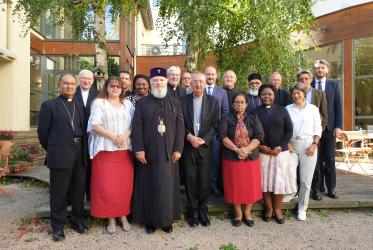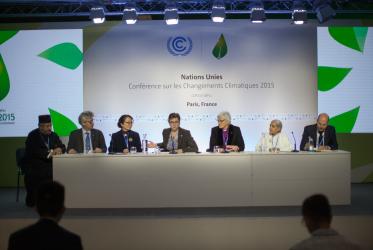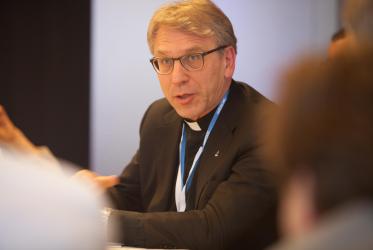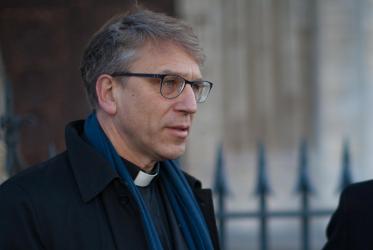Displaying 1 - 20 of 33
21 December 2021
Ecumenical conference features theological reflections on ecology
16 February 2021
Churches should use their voice on climate change
26 February 2020
WCC well-represented in Religions for Peace leadership
07 October 2019
Churches in France encourage ecological conversion
24 January 2018
G7 must address famine
22 May 2017
One refugee’s story: from Syria to France
07 January 2016
Tveit: Time to follow up on COP21 and to prepare for Davos
17 December 2015
Paris climate agreement hailed by ecumenical leaders
14 December 2015
COP21: how climate change affects access to our daily bread
09 December 2015
WCC general secretary addresses High Level Segment of COP21
09 December 2015
Faith leaders urge action at UN climate talks
02 December 2015
COP21: “A moment of truth”
01 December 2015
WCC general secretary shares signs of hope on the eve of COP21
29 November 2015
Briefing pack available from ecumenical groups at COP21
27 November 2015
UN Climate summit results vital for world’s future
26 November 2015
